Uncategorized
-
 Cosmology
CosmologyCosmologist’s ‘Cosmic Cocktail’ is a refreshing read
Katherine Freese shares her insights as a scientist studying dark matter and other mysterious components of the universe.
By Andrew Grant -
 Math
MathFather-son mathematicians fold math into fonts
MIT’s Erik and Martin Demaine create puzzle typefaces to test new ideas.
By Meghan Rosen -
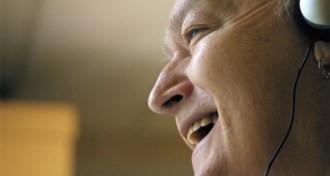 Neuroscience
NeuroscienceMusic soothes the aging brain in film ‘Alive Inside’
A social worker highlighted in a new documentary goes on a quest to bring tunes to nursing homes.
-
 Astronomy
AstronomyThe craziest NASA mission ever proposed
In this issue, Meghan Rosen provides an in-depth report on that mission, but without the erroneous conclusion that the Asteroid Redirect Mission has much to do with asteroid defense.
By Eva Emerson -

-
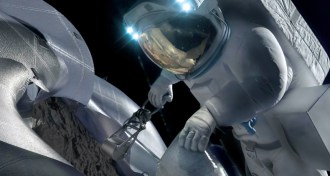 Planetary Science
Planetary ScienceNASA bets on asteroid mission as best path to Mars
NASA wants to bag an asteroid using robotic arms or an enormous sack and place the rock in the moon’s orbit for study. This may keep astronauts working but not, as NASA claims, get them Mars-ready.
By Meghan Rosen -
 Oceans
OceansMercury at ocean surface may have tripled since preindustrial times
Questions remain over dangers of toxic metal in environment.
By Beth Mole -
 Psychology
PsychologyBilingual homes may give babies a learning lift
Hearing two languages during the first six months of life linked to an early mental advantage.
By Bruce Bower -
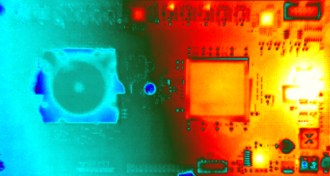 Computing
ComputingBrain-inspired computer chip mimics 1 million neurons
By processing data in parallel, computer chips modeled after the human brain could perform certain tasks, such as pattern recognition, faster and more energy-efficiently than traditional computers.
By Andrew Grant -
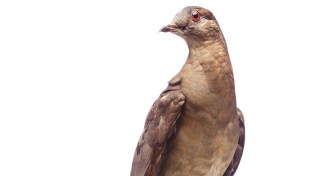 Animals
AnimalsHere’s your chance to see the last passenger pigeon
On display for the 100th anniversary of her species’ extinction, the final passenger pigeon specimen looks pretty good.
By Susan Milius -
 Earth
EarthCloud seeding fueled fire about weather modification
Experiments in 1964 resulted in “exploding” clouds.
-
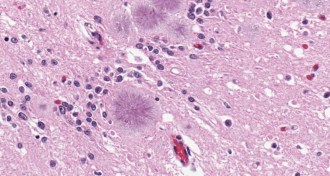 Health & Medicine
Health & MedicineNew tests screen for lethal prion disease
Urine and nasal swabs can detect small amounts of the abnormal prions that cause Creutzfeldt-Jakob disease.
By Nsikan Akpan